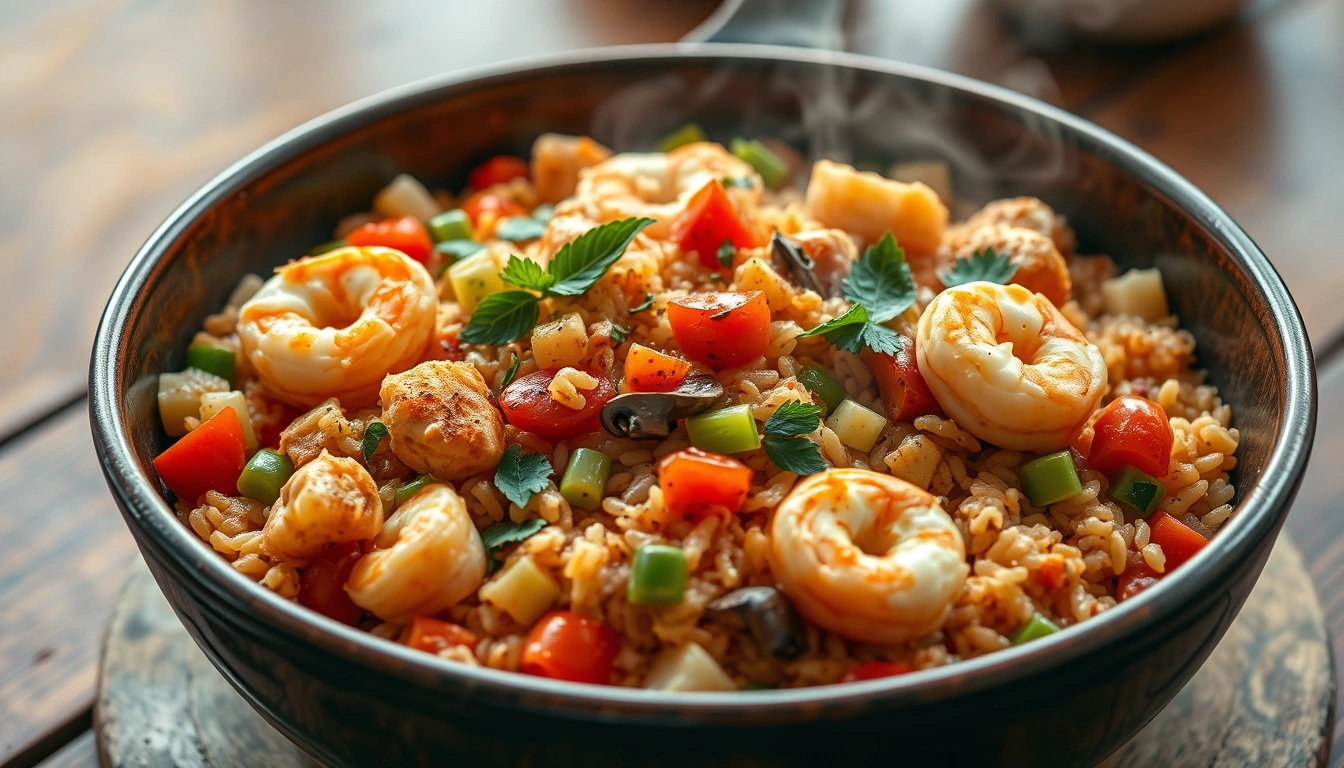Jambalaya: History and Origin
Jambalaya is a traditional dish from the Cajun and Creole cuisine of Louisiana, United States. Its origin dates back to the fusion of cultures that inhabited this region, including French, Spanish, African, and Caribbean settlers, resulting in a dish full of flavor and diversity. Although it is very popular in the United States, in other Latin American countries similar preparations are known but with different names and variations, such as "arroz a la cubana" in Cuba or "arroz con pollo" in various South American countries, though with ingredients and methods specific to each region.
The word "jambalaya" possibly comes from the French word "jambon" (ham) combined with Indigenous or African terms, reflecting the cultural mix that characterizes this dish. Traditionally, jambalaya is a stew based on rice, vegetables, assorted meats, and spices, all cooked in a single pot, which allows the flavors to blend perfectly.
How to Make Jambalaya
Ingredients: Butter, Onion, Garlic Cloves, Tomatoes, Long Grain Rice, Basil, Salt, Pepper, Cayenne, Soup Mix, Green Bell Pepper, Celery, Dried Parsley, Shrimp, Chicken Breasts, Mushrooms.
Heat butter in a tight-fitting, fully covered saucepan.
Add onion and garlic, cook over low heat for 5 minutes.
Add tomatoes and juice and bring to a boil.
Sprinkle rice over the tomatoes.
Add salt, pepper, cayenne, and soup mix.
Cook for 15 minutes.
Then add green bell pepper, celery, parsley, and basil.
If necessary, add a little water or tomato juice and cook for another 5 minutes.
Transfer to a baking dish and add shrimp, chicken and juices, and sliced mushrooms.
Cover tightly.
Bake in a preheated oven at 350°F for 15 minutes until the shrimp are cooked but not overdone.
